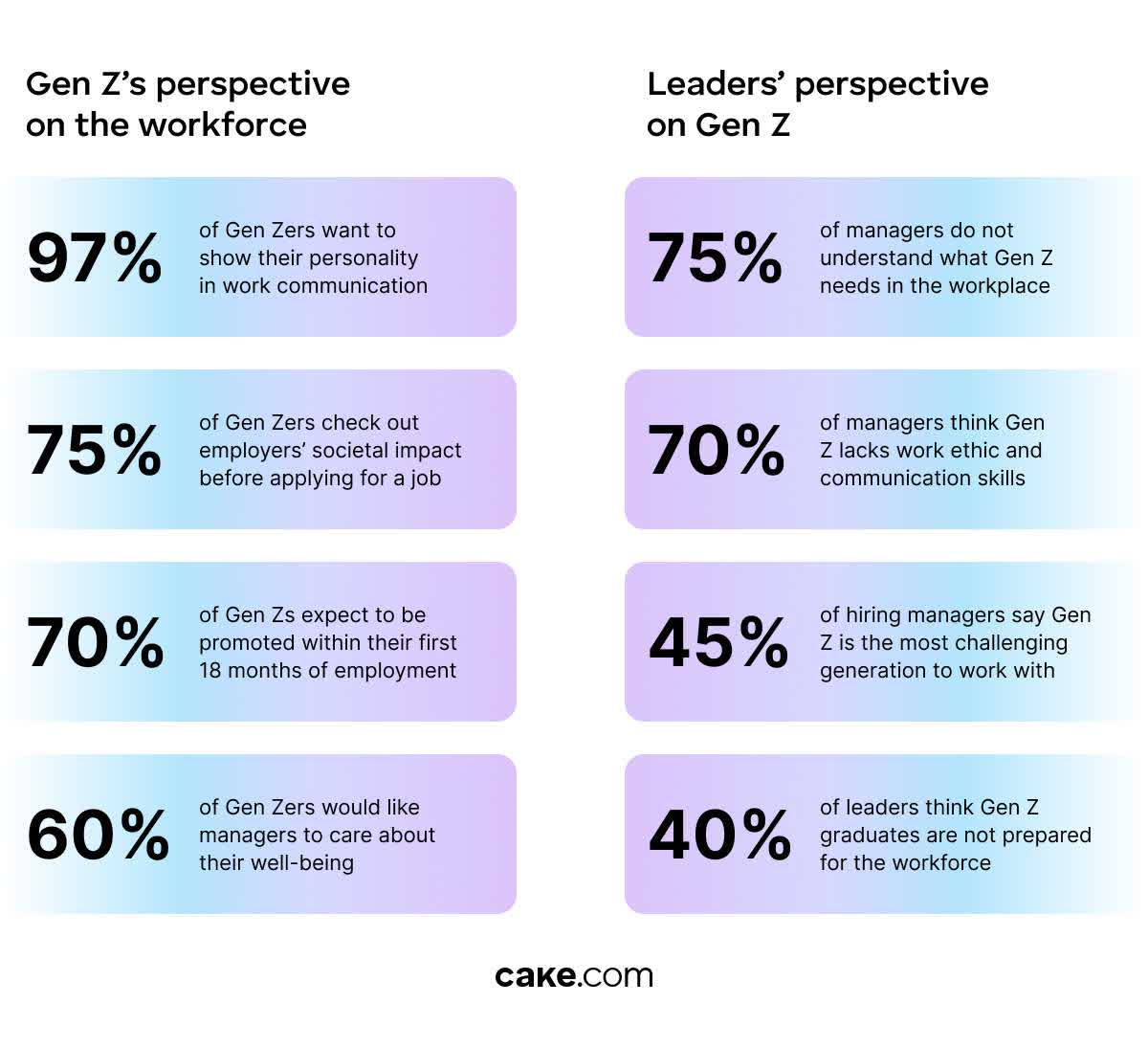Gen Z "digital natives" to be taught empathy, time management, and phone etiquette in soft skills program
A hot potato: It's been said that those born at the dawn of the internet age have grown up lacking the life skills essential for many jobs. In an attempt to address this problem, Gen Z students in Manchester, England, are to learn "soft skills" that include empathy, time management, and speaking to people in person and on the phone.
Generation Z, typically defined as those born between 1997 and 2012 (give or take), is typically considered to consist of digital natives. The term is defined as a person who grew up with the presence of digital technology or in the information age, making them comfortable and fluent in all things tech – but not typing, apparently.
Being a digital native might mean that Gen Z tends to be more tech savvy, but being raised during a time when most interactions moved online and the world experienced turbulent periods has left many of this generation with few social skills. One employer said digital natives struggled to find work as they were too afraid to speak on the phone or do face-to-face job interviews.
The Guardian reports that the Unesco-partner non-profit Higher Health launched Skills 4 Living in Greater Manchester this week. It hopes to reach 10,000 young people in the city and has partnered with higher education providers, including the University of Manchester.
While the curriculum will be delivered online, students will be expected to complete assessments by interacting in person with others. In addition to learning empathy and time-management, there will be seminars on spotting fake news, staying safe on the internet, how to challenge racism, sexism and homophobia, gambling awareness, and avoiding scams.
It's believed that growing up with the internet, social media, and texting has left Gen Z with fewer "everyday but essential" communication skills than older generations.
Courtesy of Cake.com
There are also more cases of mental health issues among young people than in the past. Prof Sandeep Ranote, a leading child psychiatrist said, "When I started in my career as a consultant in 2005, one in 10 young people had a diagnosable mental health condition. We're now [at] one in five. That's not okay. Could it have been prevented? Yes is the answer. This is a toolkit to prepare young people for, even in the space of 25 years, a very different global world."
// Related Stories
In December, a survey found that over a quarter of executives wouldn't consider hiring a recent college graduate today due to a lack of soft skills that included communications, problem solving, adaptability, and conflict resolution.
Worldwide, about a fifth of those aged between 15 and 24 were not in employment, education, or training in 2023. While the lack of soft skills will be a factor -- and some put it down to laziness and selectiveness -- others blame the rise of useless university degrees.


